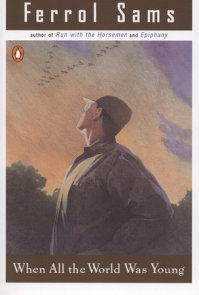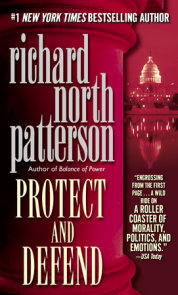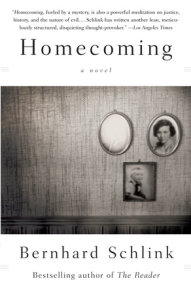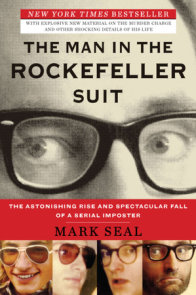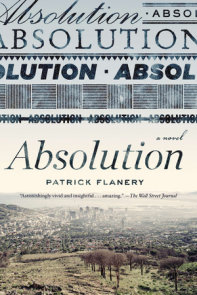READERS GUIDE
Questions and Topics for Discussion
INTRODUCTION
Across America, historians pull dusty record books off courthouse shelves and pore over stacks of papers to untangle their small towns’ histories and piece together when citizens were born, married, and buried. But try as they may, those who’ve not borne witness cannot fill in certain gaps. These are the spans of time when lives are led and lost, when a word or gesture changes the course of events. Official logs miss when parents take pride in or shun their children and when legacies are embraced or escaped. It is in these times that a town thrives or is run over by the wheels of progress.
When James Aloysius “Buster” Holcombe, Jr., decides to record his hometown’s bumpy history, he doesn’t depend on county clerks’ collective memories—or agendas: some were Cofield supporters, some backers of the Bazemores, and some never even heard either name. He relies instead on his own memories and stories told over the generations since the Civil War, conjuring a cast of local characters to fill in what’s missing. We don’t just learn who married whom; we know whose wife was duck-butted and what disasters befell each wedding. We don’t simply learn what land changed hands; we know who originally owned the parcel and why the price was set where it was. We know who baked two coconut cakes for a funeral and, even juicier, why the first one wasn’t enough.
Buster’s neighbors relish stability, regarding anyone who’s lived there for even thirty years as an outsider. But their town has stood sentinel through the defining moments of three centuries—the war between the states, Reconstruction, two world wars, prohibition, segregation, integration, Korea, Vietnam, and a political party’s loss of power. More than a collection of eccentrics, Buster’s town is the very embodiment of the American South.
Still, in the telling there is the inevitable leaving out. Buster’s own history is a mere pencil sketch compared to the rich picture he paints of his town. But for all his poetry quoting and odd ways, Buster has lived according to a strict gentlemanly code. And when that code meets its final test, he doesn’t let anyone, himself or us, down. It is the people he’s known—living and dead, good and striving—who serve as a constant reminder that he is the product of, to borrow Beatrice Cofield’s way with words, a “wonderful wonderful just wonderful” town.
ABOUT FERROL SAMSFerrol Sams is a physician, humorist, storyteller, and the bestselling author of eight novels rooted in the oral tradition of southern humor and folklore. He lives in Fayetteville, Georgia.
DISCUSSION QUESTIONSAfter Mr. C. C. Summerfield gets into a verbal altercation, his secretary reflects, “That’s the fanciest cussing I ever heard without using no naughty words.” What are some good “cussings” you’ve heard or given? Would they have been more or less powerful with actual cursing?
Before World War II, Buster’s town regarded soldiers as people to avoid. But once the town’s own boys went to fight, they changed their attitude about enlisted men. What are some other situations where people’s prejudices don’t stand up to actual exposure to the people they were prejudiced against? What are some times in your own life where you were pleasantly surprised by someone or even by a group of people?
Buster carries a grudge against Toor Cofield for many years over a comment he once made to Pearlie Mae. Does Buster seem like the kind who would hold a grudge? Why do you think he couldn’t let go of it earlier?
Mae and Emmet have an interesting relationship, to say the least. Do you think their fighting has helped or hurt their marriage? Why do you think so? Compare their relationship to that of Toor and Beatrice Cofield.
It seems that in all small towns, southern or not, everyone’s in everyone else’s business. If you’re not doing the watching, you’re the one being watched. If you live in a small town, discuss how your town fares in terms of gossip. If you’re from a larger city, discuss how life is similar to that in a small town. How is it different?
Who were your favorite characters? Did you like them for their integrity? Or because they were comical? Were there any characters you simply didn’t like? Why?
Do you like how the author chose to let the story unfold? Would you have preferred a more straightforward, linear narrative? What characters or events might Sams have left out in order to employ a more traditional construction?
When Buster is called upon to give up some of his precious land, he hesitates at first. What do you think factored more into his decision: knowing his land would never be ruined by development, or the welfare of the children who would benefit? In what ways did he approach his decision with the right frame of mind?
Who do you think you would have supported—the Cofields or the Bazemores? Why?
Buster certainly doesn’t mince words when it comes to politics. What did you think about his opinions on certain issues and politicians? If they’d been different, do you think you would have had the same reading experience? Why or why not?
What do you think of the name Buster and Bo Mookinfoos decided on for the new campus of the hospital? Do you think your town would embrace the idea of a similar facility being built in the middle of town? What would they find appealing? To what might they object?







